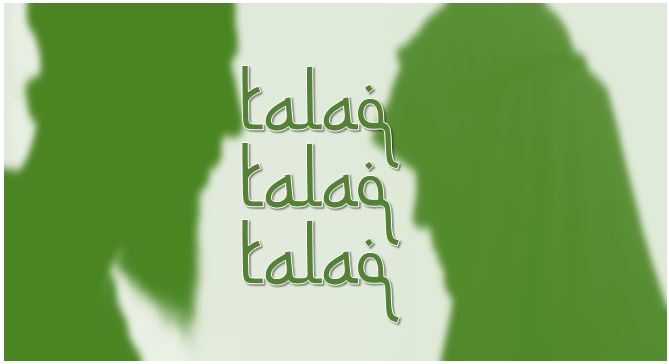In our country, we have our Muslim brothers and sisters who follow Islam. In the Islam, there is the manifesto that states if men and women who follow Islam don’t want to live with each other then they can be separated just by calling “Talaaq Talaaq Talaaq”. We cannot question on it. It is their system and they have the right to follow it.
But how many women get their rights when there is the situation such like that. In Indian constitution, our judiciary system accepts the divorce between husband and wife of if any of them use “Triple Talaq” just by saying. How many times women get justice in such situation and how many time women use this system? Do we have any statistics on it?

Israt Jahaan, petitioner who is challenging the constitutional validity of the triple talaq system, senior advocate R K Kapoor said Friday that if the fundamental rights of any Indian citizen is violated, irrespective of gender, then he or she can knock at the door of the Supreme Court under Article 32 of the Constitution. In her petition, Jahan has raised the question whether an arbitrary and unilateral divorce through triple talaq can deprive the wife of her rights in the matrimonial home as also her claim to custody of her children.
Kapoor told ANI that this issue of delivering triple talaq on mobile phone has risen recently and the matter has been presented before the Supreme Court. “It would be relevant to say that when the fundamental rights of Indian citizens, irrespective of gender, are affected, then he or she has a right to knock the door of the Supreme Court,” Kapoor said.
“And, infact, Article 32 (of the Constitution) itself is a fundamental right, where the person can knock the door of the Supreme Court if there is a violation of his or her fundamental rights, particularly under Article 21, vis-a-vis any religious community or otherwise,” Kapoor added.
Kapoor further said, “If there is a contrast, or there is a violation of fundamental rights vis-a-vis the other rights given under personal law, then the honourable Supreme Court will go into this issue which is already pending before the honourable Supreme Court, and this matter will also be tagged with that.”
The apex court agreed to hear on Friday the writ petition filed by Ishrat Jahan from Howrah through advocate V K Biju, who mentioned it before a bench comprising of Justices A R Dave and L Nageswara Rao. Ishrat Jahan has four kids aged between seven and 12 years, who were forcibly taken away from her and now she does not know their whereabouts.
In her petition, she sought a declaration from the court that Section 2 of the Muslim Personal Law (Shariat) Application Act, 1937 was unconstitutional, as it violated fundamental rights guaranteed under Articles 14 (equality), 15 (non-discrimination), 21 (life) and 25 (religion) of the Constitution.
On July 29, the Supreme Court had favoured a wider debate on the petitions challenging the validity of the triple talaq. Earlier, the All India Muslim Personal Law Board and the Jamiat-e-Ulema had defended the practice of triple talaq, saying it was part of the Quran-dictated personal law which was beyond the ambit of judicial scrutiny.
Until we understand that if you are going to marry someone then you must understand that there is the responsibility one has to respect and save each other rights. I don’t think “Triple Talaq” System has any value until it is being reviewed by the constitution and protect the rights of both the human who are going under it.
